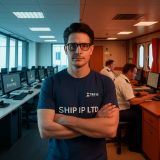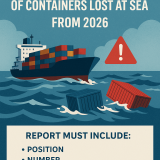Carnival Cruises’ Italy-based, clean technology subsidiary Ecospray has expanded its range of innovative products with WESP, a preparatory technology for carbon capture solutions combined with EGCS and diesel engines.
WESP (Wet Electrostatic Precipitator) which was developed in recent months is ready for its first installation on a cruise ship. Subsequently, thorough testing will be run in collaboration with important third-party bodies, such as RINA and SGS, in order to validate and assess the results.
The WESP system was developed to eliminate visible smoke from the stack, especially during engine start-up and at low loads, by capturing particles (PM2.5 and below) and part of condensable species (SO3). It can be installed downstream of the scrubber DeSOx tower and has low pressure drops and high removal efficiency. WESP can be integrated into an existing DeSOx tower or installed as a stand-alone unit, for both Open Loop and Hybrid scrubber systems.
All required laboratory testing has been successfully completed in recent months at the Ecospray Labs. The project will be developed in collaboration with RINA, who will support Ecospray in the assessment of the technology and run various tests.
SGS will also assist Ecospray with the laboratory analyses to test system performance in full scale.
Andrea Cogliolo, Senior Director Marine RINA, said, “RINA’s role in this project begins with the verification and validation of the installation drawings onboard the ship, continues by establishing a test protocol which is to be performed with the support of a third-party company equipped for measurements, and ends with the issuance of a report on the results achieved. The collaboration with Ecospray is part of RINA’s strategy, which looks at the energy transition as an area in which to make an important contribution. In the coming years, the shipping industry will be driven by decarbonisation and RINA is playing an active role in this transformation, making its multidisciplinary skills available to the sector to build an increasingly sustainable future.”
Vladimiro Bonamin, Director of SGS I&E Marine Services Geneva, said, “For this project, SGS Marine Services has been tasked with establishing the details for the analytical side of the test protocol prepared by RINA, and above all, preparing the QAQC protocol in order to guarantee top quality measurements. This collaboration with Ecospray is part of SGS’s wider strategy – as the only global player operating in the field of environmental measurements on large transport and cruise ships, we also want to be leaders for complex measurements in technological and scientific content.”
Filippo Lossani – Ecospray added, “Like the EGCS plants for diesel engines, WESP is a ‘bridge’ technology, meaning it’s a true transition technology which will guide us towards the 2030-2050 objectives. We are very satisfied with WESP, as it is a new product for the maritime industry and is ready to be installed. Considering the ever-increasing focus on issues involving environmental sustainability and health – and given the growing demand for the reduction of polluting emissions – we expect that the standardisation process of dust and particulates will be the necessary next step; and we are ready.”











